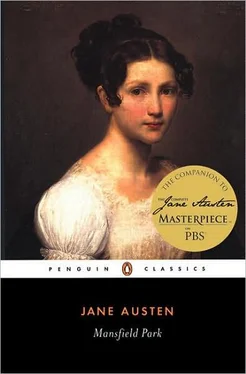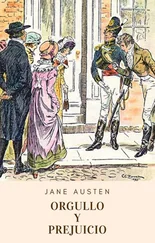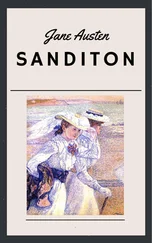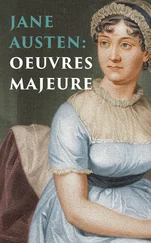Jane Austen - Mansfield Park
Здесь есть возможность читать онлайн «Jane Austen - Mansfield Park» — ознакомительный отрывок электронной книги совершенно бесплатно, а после прочтения отрывка купить полную версию. В некоторых случаях можно слушать аудио, скачать через торрент в формате fb2 и присутствует краткое содержание. Год выпуска: 1814, Жанр: Классическая проза, на английском языке. Описание произведения, (предисловие) а так же отзывы посетителей доступны на портале библиотеки ЛибКат.
- Название:Mansfield Park
- Автор:
- Жанр:
- Год:1814
- ISBN:нет данных
- Рейтинг книги:4 / 5. Голосов: 1
-
Избранное:Добавить в избранное
- Отзывы:
-
Ваша оценка:
- 80
- 1
- 2
- 3
- 4
- 5
Mansfield Park: краткое содержание, описание и аннотация
Предлагаем к чтению аннотацию, описание, краткое содержание или предисловие (зависит от того, что написал сам автор книги «Mansfield Park»). Если вы не нашли необходимую информацию о книге — напишите в комментариях, мы постараемся отыскать её.
Mansfield Park — читать онлайн ознакомительный отрывок
Ниже представлен текст книги, разбитый по страницам. Система сохранения места последней прочитанной страницы, позволяет с удобством читать онлайн бесплатно книгу «Mansfield Park», без необходимости каждый раз заново искать на чём Вы остановились. Поставьте закладку, и сможете в любой момент перейти на страницу, на которой закончили чтение.
Интервал:
Закладка:
How Fanny listened, with what curiosity and concern, what pain and what delight, how the agitation of his voice was watched, and how carefully her own eyes were fixed on any object but himself, may be imagined. The opening was alarming. He had seen Miss Crawford. He had been invited to see her. He had received a note from Lady Stornaway to beg him to call; and regarding it as what was meant to be the last, last interview of friendship, and investing her with all the feelings of shame and wretchedness which Crawford's sister ought to have known, he had gone to her in such a state of mind, so softened, so devoted, as made it for a few moments impossible to Fanny's fears that it should be the last. But as he proceeded in his story, these fears were over. She had met him, he said, with a serious - certainly a serious - even an agitated air; but before he had been able to speak one intelligible sentence, she had introduced the subject in a manner which he owned had shocked him. "'I heard you were in town,' said she; 'I wanted to see you. Let us talk over this sad business. What can equal the folly of our two relations?' I could not answer, but I believe my looks spoke. She felt reproved. Sometimes how quick to feel! With a graver look and voice she then added, 'I do not mean to defend Henry at your sister's expense.' So she began, but how she went on, Fanny, is not fit, is hardly fit to be repeated to you. I cannot recall all her words. I would not dwell upon them if I could. Their substance was great anger at the folly of each. She reprobated her brother's folly in being drawn on by a woman whom he had never cared for, to do what must lose him the woman he adored; but still more the folly of poor Maria, in sacrificing such a situation, plunging into such difficulties, under the idea of being really loved by a man who had long ago made his indifference clear. Guess what I must have felt. To hear the woman whom - no harsher name than folly given! So voluntarily, so freely, so coolly to canvass it! No reluctance, no horror, no feminine, shall I say, no modest loathings? This is what the world does. For where, Fanny, shall we find a woman whom nature had so richly endowed? Spoilt, spoilt!"
After a little reflection, he went on with a sort of desperate calmness. "I will tell you everything, and then have done for ever. She saw it only as folly, and that folly stamped only by exposure. The want of common discretion, of caution: his going down to Richmond for the whole time of her being at Twickenham; her putting herself in the power of a servant; it was the detection, in short - oh, Fanny! it was the detection, not the offence, which she reprobated. It was the imprudence which had brought things to extremity, and obliged her brother to give up every dearer plan in order to fly with her."
He stopt. "And what," said Fanny (believing herself required to speak), "what could you say?"
"Nothing, nothing to be understood. I was like a man stunned. She went on, began to talk of you; yes, then she began to talk of you, regretting, as well she might, the loss of such a -. There she spoke very rationally. But she has always done justice to you. 'He has thrown away,' said she, 'such a woman as he will never see again. She would have fixed him; she would have made him happy for ever.' My dearest Fanny, I am giving you, I hope, more pleasure than pain by this retrospect of what might have been - but what never can be now. You do not wish me to be silent? If you do, give me but a look, a word, and I have done."
No look or word was given.
"Thank God," said he. "We were all disposed to wonder, but it seems to have been the merciful appointment of Providence that the heart which knew no guile should not suffer. She spoke of you with high praise and warm affection; yet, even here, there was alloy, a dash of evil; for in the midst of it she could exclaim, 'Why would not she have him? It is all her fault. Simple girl! I shall never forgive her. Had she accepted him as she ought, they might now have been on the point of marriage, and Henry would have been too happy and too busy to want any other object. He would have taken no pains to be on terms with Mrs. Rushworth again. It would have all ended in a regular standing flirtation, in yearly meetings at Sotherton and Everingham.' Could you have believed it possible? But the charm is broken. My eyes are opened."
"Cruel!" said Fanny, "quite cruel. At such a moment to give way to gaiety, to speak with lightness, and to you! Absolute cruelty."
"Cruelty, do you call it? We differ there. No, hers is not a cruel nature. I do not consider her as meaning to wound my feelings. The evil lies yet deeper: in her total ignorance, unsuspiciousness of there being such feelings; in a perversion of mind which made it natural to her to treat the subject as she did. She was speaking only as she had been used to hear others speak, as she imagined everybody else would speak. Hers are not faults of temper. She would not voluntarily give unnecessary pain to any one, and though I may deceive myself, I cannot but think that for me, for my feelings, she would - Hers are faults of principle, Fanny; of blunted delicacy and a corrupted, vitiated mind. Perhaps it is best for me, since it leaves me so little to regret. Not so, however. Gladly would I submit to all the increased pain of losing her, rather than have to think of her as I do. I told her so."
"Did you?"
"Yes; when I left her I told her so."
"How long were you together?"
"Five-and-twenty minutes. Well, she went on to say that what remained now to be done was to bring about a marriage between them. She spoke of it, Fanny, with a steadier voice than I can." He was obliged to pause more than once as he continued. "'We must persuade Henry to marry her,' said she; 'and what with honour, and the certainty of having shut himself out for ever from Fanny, I do not despair of it. Fanny he must give up. I do not think that even he could now hope to succeed with one of her stamp, and therefore I hope we may find no insuperable difficulty. My influence, which is not small shall all go that way; and when once married, and properly supported by her own family, people of respectability as they are, she may recover her footing in society to a certain degree. In some circles, we know, she would never be admitted, but with good dinners, and large parties, there will always be those who will be glad of her acquaintance; and there is, undoubtedly, more liberality and candour on those points than formerly. What I advise is, that your father be quiet. Do not let him injure his own cause by interference. Persuade him to let things take their course. If by any officious exertions of his, she is induced to leave Henry's protection, there will be much less chance of his marrying her than if she remain with him. I know how he is likely to be influenced. Let Sir Thomas trust to his honour and compassion, and it may all end well; but if he get his daughter away, it will be destroying the chief hold.'"
After repeating this, Edmund was so much affected that Fanny, watching him with silent, but most tender concern, was almost sorry that the subject had been entered on at all. It was long before he could speak again. At last, "Now, Fanny," said he, "I shall soon have done. I have told you the substance of all that she said. As soon as I could speak, I replied that I had not supposed it possible, coming in such a state of mind into that house as I had done, that anything could occur to make me suffer more, but that she had been inflicting deeper wounds in almost every sentence. That though I had, in the course of our acquaintance, been often sensible of some difference in our opinions, on points, too, of some moment, it had not entered my imagination to conceive the difference could be such as she had now proved it. That the manner in which she treated the dreadful crime committed by her brother and my sister (with whom lay the greater seduction I pretended not to say), but the manner in which she spoke of the crime itself, giving it every reproach but the right; considering its ill consequences only as they were to be braved or overborne by a defiance of decency and impudence in wrong; and last of all, and above all, recommending to us a compliance, a compromise, an acquiescence in the continuance of the sin, on the chance of a marriage which, thinking as I now thought of her brother, should rather be prevented than sought; all this together most grievously convinced me that I had never understood her before, and that, as far as related to mind, it had been the creature of my own imagination, not Miss Crawford, that I had been too apt to dwell on for many months past. That, perhaps, it was best for me; I had less to regret in sacrificing a friendship, feelings, hopes which must, at any rate, have been torn from me now. And yet, that I must and would confess that, could I have restored her to what she had appeared to me before, I would infinitely prefer any increase of the pain of parting, for the sake of carrying with me the right of tenderness and esteem. This is what I said, the purport of it; but, as you may imagine, not spoken so collectedly or methodically as I have repeated it to you. She was astonished, exceedingly astonished - more than astonished. I saw her change countenance. She turned extremely red. I imagined I saw a mixture of many feelings: a great, though short struggle; half a wish of yielding to truths, half a sense of shame, but habit, habit carried it. She would have laughed if she could. It was a sort of laugh, as she answered, 'A pretty good lecture, upon my word. Was it part of your last sermon? At this rate you will soon reform everybody at Mansfield and Thornton Lacey; and when I hear of you next, it may be as a celebrated preacher in some great society of Methodists, or as a missionary into foreign parts.' She tried to speak carelessly, but she was not so careless as she wanted to appear. I only said in reply, that from my heart I wished her well, and earnestly hoped that she might soon learn to think more justly, and not owe the most valuable knowledge we could any of us acquire, the knowledge of ourselves and of our duty, to the lessons of affliction, and immediately left the room. I had gone a few steps, Fanny, when I heard the door open behind me. 'Mr. Bertram,' said she. I looked back. 'Mr. Bertram,' said she, with a smile; but it was a smile ill-suited to the conversation that had passed, a saucy playful smile, seeming to invite in order to subdue me; at least it appeared so to me. I resisted; it was the impulse of the moment to resist, and still walked on. I have since, sometimes, for a moment, regretted that I did not go back, but I know I was right, and such has been the end of our acquaintance. And what an acquaintance has it been! How have I been deceived! Equally in brother and sister deceived! I thank you for your patience, Fanny. This has been the greatest relief, and now we will have done."
Читать дальшеИнтервал:
Закладка:
Похожие книги на «Mansfield Park»
Представляем Вашему вниманию похожие книги на «Mansfield Park» списком для выбора. Мы отобрали схожую по названию и смыслу литературу в надежде предоставить читателям больше вариантов отыскать новые, интересные, ещё непрочитанные произведения.
Обсуждение, отзывы о книге «Mansfield Park» и просто собственные мнения читателей. Оставьте ваши комментарии, напишите, что Вы думаете о произведении, его смысле или главных героях. Укажите что конкретно понравилось, а что нет, и почему Вы так считаете.












